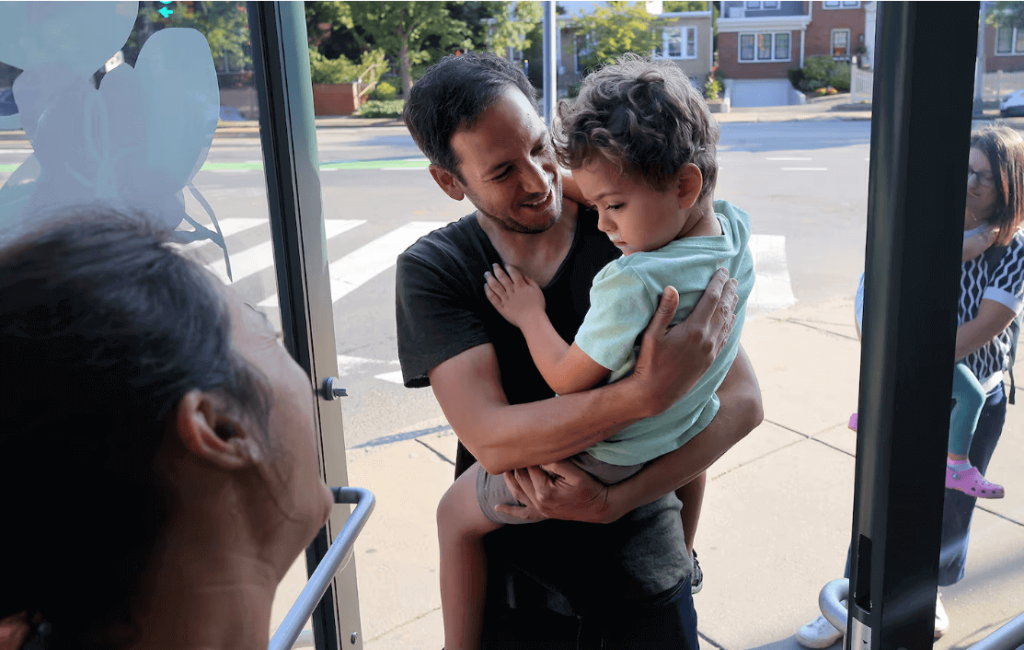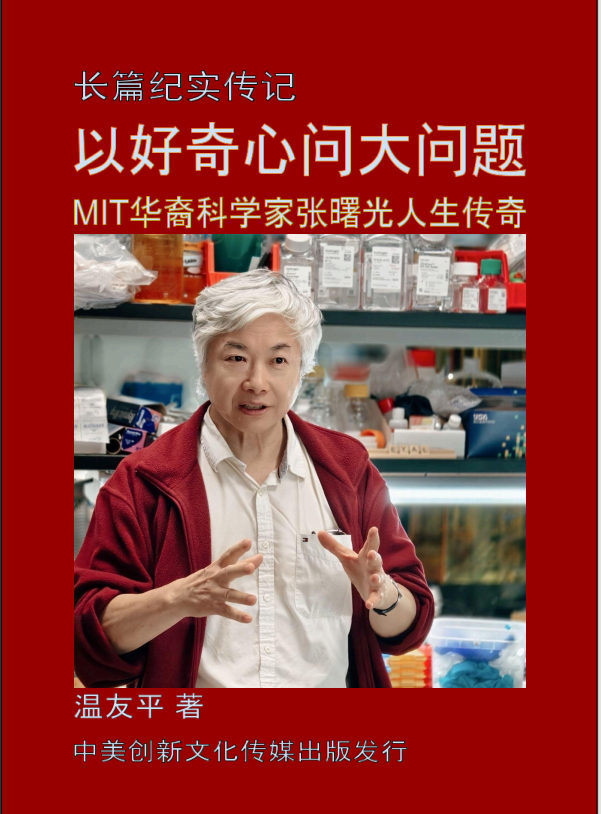【中美创新时报2024 年 9 月 15日编译讯】(记者温友平编译)随着马萨诸塞州剑桥市普及学前教育计划的实施,其他几百人——富人、穷人和中等收入者——也将获得免费教育,否则今年每个孩子的费用将超过 3 万美元。这里的官员和居民表示,这将使这座城市更接近于一个孩子不需要富裕父母就能享受高端学前教育的地方。《波士顿环球报》记者Spencer Buell 和 Christopher Huffaker 对此作了下述报道。
Laura McMaster 简直不敢相信自己的运气。
她和丈夫正在马萨诸塞州总医院开始病理学研究,他们正准备带着 4 岁的女儿 Amelia 从亚特兰大搬到剑桥。在网上研究他们的新社区时,他们得到了一个意想不到的惊喜:今年有史以来第一次,学前班是免费的。
“这真的就像是命运的安排,”她说。
她了解到,该计划将为该市每个四岁儿童支付全额学费,无论收入多少,包括私立、专业学校的精品教学方式,其中包括卡普西恩蒙特梭利学校,这是一所位于街对面的双语法语-英语学校。这所学校很完美,因为她的丈夫是法国人,他们一直渴望找到一个可以让阿米莉亚练习法语的地方。他们选择了这所学校,他们的女儿在那里免费度过了秋天。
“如果有必要,我们会集结资源。但能得到这样的解脱是——这是黄金,”麦克马斯特说。“我所有的朋友和家人都在问,‘你是怎么做到的?’”
这对她的家庭来说是一个经济上的福利。随着该市普及学前教育计划的实施,其他几百人——富人、穷人和中等收入者——也将获得免费教育,否则今年每个孩子的费用将超过 3 万美元。这里的官员和居民表示,这将使这座城市更接近于一个孩子不需要富裕父母就能享受高端学前教育的地方。
该项目是一个混合交付系统:教室由城市、教育部门和提供座位的私人运营商管理。根据该市的数据,符合年龄和居住要求的每个孩子(总共 777 名)都被免费安排在教室里,其中 41% 就读于私立学校。
数据显示,40% 的学生来自低收入家庭。
该系统的设计目的是让该市的超级富豪和最贫穷的人都能享受同样的福利。
“它实际上源于我们民选领导人极力推行的一种哲学方法,”负责人力服务的助理城市经理 Ellen Semonoff 说。“我们不会根据收入来区分孩子。每个孩子都会得到同样的机会。”
由于该市选择采用公私合作的方式,以确保有足够的座位,因此选择范围非常广泛。有蒙特梭利学校提供法语、中文和西班牙语教学。一些学校由上市公司 Bright Horizons 经营,另一些由 Campus Child Care 经营,后者为哈佛附属家庭提供服务。其中一个选择是艺术学前班,这是一所犹太学校,提供“一个充满艺术、音乐和自然的世界”。另一个选择是摇滚日托,每天提供“现场音乐课程”。
剑桥妈妈 Emily Anne Jacobstein 是一名管理顾问,她说,她“很高兴”得知该计划将允许她四岁的儿子留在艺术学前班,他过去两年一直在那里上学,她“知道他正在茁壮成长”。
更好的是,她的邻居现在也可以上学,而不必担心费用。
“知道所有家庭都参与了这个项目,让我感觉我的纳税钱花得值,”她说。
该项目对新罕布什尔大学助理教授劳雷·巴里拉斯来说也是一个可喜的变化,去年她一直在为女儿奥古斯塔支付费用,让她在剑桥的另一所法语学校上学。当学校选择不参加免费学前班项目时,她干脆把女儿转到了离这里五分钟路程的卡普西内,这是一所法英双语学校。“这是一个绝佳的机会,”她说。“也是一个巨大的经济解脱。”
她说,一些比较富裕的剑桥朋友让他们的孩子留在奥古斯塔的旧学校,这是一所法语浸入式学校,尽管他们有资格获得免费名额。
“他们对价格不那么敏感,所以[支付学费]不是问题。但对很多人来说,这仍然是个问题,”巴里拉斯说。她说,对她的家人来说,“这非常重要。”
参与该项目的私立幼儿园需要获得州政府的许可,符合课程、培训和班级规模标准,并向教师支付最低工资。
反过来,该市向服务提供者支付每名学生 30,372 美元的固定费用——这比官员所说的大多数私立学校收取的费用要高。
该计划需要纳税人支付大量费用:本财年的资金定为 3400 万美元。
“这是一笔巨大的投资,但我们都认为这是我们能做的最好的投资,”剑桥市议员 Sumbul Siddiqui 说,他在该项目成型时担任市长。“我们这里有很多资源,所以我们应该进行这样的投资。我们有能力。”
剑桥 Capucine Montessori 学校的老师 Rahle Shibere 帮助 Ayman Rauf 拼拼图。
剑桥 Capucine Montessori 学校的 Rahle Shibere 老师正在帮助 Ayman Rauf 玩拼图游戏。Lane Turner/Globe Staff
官员们认为,现在该市将有更多的儿童上幼儿园,随着孩子们长大,这将带来回报。
“让他们这么早就开始上学无疑为他们提供了发现优势、发现兴趣的机会,”剑桥公立学校幼儿教育执行主任 Karen Feeney 说道。“这不仅为学生作为学习者打下了更坚实的基础,也让我们知道他们作为学习者的身份。”
多年来,马萨诸塞州一直希望为 4 岁甚至 3 岁儿童提供某种形式的普及教育,学前班和幼儿园这两个词经常互换使用。但剑桥并没有太多公司为所有 4 岁儿童提供免费的学校体验。
州政府已投入资金,到 2026 年底为门户城市的四岁儿童提供普遍的入学机会。斯普林菲尔德是该州人口第三多的城市,去年实现了全民学前教育,但与第四大城市剑桥不同,所有免费学前班名额都位于该市的公立学校。
近二十年来,波士顿一直在扩大名额,目标是普及高质量的学前班。它现在有近 5,000 个名额,通常足以满足每个 4 岁申请者的需求,尽管该市仍在努力增加更多高质量选择并增加 3 岁儿童的名额。与剑桥一样,它提供多种不同的服务提供者:公立学校、私立学校、日托中心和家庭托儿服务提供者。
回到 Capucine,这是开学第三天,二十几名学生四处走动,忙着做各种活动——其中一排粉色木块从大到小排列——而一些讲法语和英语的老师则温和地鼓励着他们。
自 2018 年 Capucine 开办以来,其创始人一直致力于让更多家庭能够享受这种以儿童为主导但精心策划的教育体验(在双语环境中),否则这些家庭可能无法负担支持这种专业化的高昂费用。他们说,现在有 13 名学生由该市的免费学前教育计划资助,该计划正在帮助创建一个种族和经济多元化的班级,而无需做出牺牲。
课程和教育方法基本保持不变。唯一的变化是什么?员工的工资上涨了。
“作为 CPP 计划的一部分,我们仍然可以实现学校的公平目标,同时也能够为我们的教师支付生活工资,”学校联席校长 Marion Geiger 说。
在该计划实施的第一年,大约 250 名三岁儿童也有资格享受免费学前教育。某些儿童享有优先权,包括那些家庭有资格享受免费或减价午餐或收入低于剑桥中位数收入 65% 的儿童。
剑桥市议员兼副市长马克·麦戈文 (Marc McGovern) 表示,普及学前教育计划将带来“重大改变”,并感叹这项计划来得太晚了——基本上是他当选公职的整个 20 年。
麦戈文表示,该市仍需要时间来“解决问题”,但与此同时,他希望开始考虑是否将该计划扩大到所有三岁儿童,而且要尽快实施。
“我当然不想再等 20 年才进行这样的讨论,”他说。
题图:Laure Bouyon 老师在剑桥 Capucine Montessori 学校的接送时间迎接了 Theo Lazarus 和他的父亲 Arnold Lazarus。Lane Turner/Globe Staff
附原英文报道:
Doesn’t matter if you’re rich, poor, or in between, if you live in Cambridge pre-k is now free
By Spencer Buell and Christopher Huffaker Globe Staff,Updated September 14, 2024
Teacher Laure Bouyon greeted Theo Lazarus and his dad Arnold Lazarus during drop off time at Capucine Montessori School in Cambridge.Lane Turner/Globe Staff
CAMBRIDGE — Laura McMaster couldn’t believe her luck.
She and her husband, who was starting a pathology fellowship at Massachusetts General Hospital, were preparing for a move to Cambridge from Atlanta with their 4-year-old daughter, Amelia. Researching their new community online, they were met with an extraordinary surprise: For the first time ever this year, pre-kindergarten is free.
“It was really, like, kismet,” she said.
The program, she learned, would pay the full freight for every four-year-old in the city, regardless of income, including in private, specialized schools with boutique teaching styles, among them Capucine Montessori School, a bilingual French-English option just down the street. It was perfect, as her husband is French, and they had been eager to find a place where Amelia could practice the language. They selected the school, and their daughter was placed there for the fall, free of charge.
“We’d rally resources if we had to. But to have the relief of this is — it’s golden,” McMaster said. “All of my friends and family are like, ‘How did you work that out?’ ”
It will be a financial boon for her family. As it will for several hundred others — rich, poor, and in between — who will get for free education that can otherwise cost more than $30,000 per child this year, as the city’s universal pre-kindergarten program gets off the ground. Officials and residents here say it will move the city closer to being a place where a child doesn’t need wealthy parents to have a high-end pre-kindergarten experience.
The program is a mixed-delivery system: classrooms are run by the city, the school department, and private operators who made seats available. Every child who met age and residency requirements, 777 in all, was placed in a classroom for free, according to data from the city, 41 percent of which were in private schools.
Forty percent of the students are from low-income households, the data show.
The system, by design, is set up so that both the city’s ultra-wealthy and its poorest qualify for the same benefit.
“It began really from a philosophical approach that was pushed very hard by our elected leaders,” said Ellen Semonoff, assistant city manager for human services. “We weren’t making distinctions between children based on income. Every child would get the same opportunity.”
Because the city opted to pursue a public-private partnership approach to ensure there were enough seats to go around, the list of options is eclectic. There are Montessori schools offering instruction in French, Chinese, and Spanish. Some sites are run by the publicly traded company Bright Horizons, others by Campus Child Care, which serves Harvard-affiliated families. One option is Preschool of the Arts, Jewish schools offering “a world full of art, music, and nature.” Another is Rock and Roll Daycare, where “live music classes” are offered daily.
Cambridge mom Emily Anne Jacobstein, a management consultant, said she was “thrilled” to learn the program would allow her four-year-old son to stay at a Preschool of the Arts, where he’s been a student for the past two years and where she “knew he was thriving.”
All the better that her neighbors can now also attend the school without worrying about the cost.
“Knowing that all families are a part of this program makes me feel like my tax dollars are well spent,” she said.
The program was also a welcome change for Laure Barillas, an assistant professor at the University of New Hampshire, who last year had been paying for her daughter Augusta to attend a different French-language school in Cambridge. When it opted not to participate in the free pre-kindergarten program, she simply moved her daughter five minutes away to Capucine, the French-English bilingual school. “An amazing opportunity,” she said. “Also a huge financial relief.”
Some wealthier Cambridge friends kept their children in Augusta’s old school, which is French-immersion, even though they were eligible for the free seats, she said.
“They’re not that price-sensitive, so [paying tuition] isn’t an issue. But for a lot of people, it still is,” Barillas said. For her family, she said, “it’s very substantial.”
Private preschools that participate need to be licensed by the state, meet standards for curriculum, training, and class size, and pay teachers a minimum salary.
In turn, the city pays providers a flat rate of $30,372 per student — more than what officials said most private schools charged.
The program comes with a substantial taxpayer pricetag: Funding in this fiscal year is set at $34 million.
“It’s a huge investment, but we all felt that it’s the best investment we can make,” said Sumbul Siddiqui, a Cambridge city councilor who was mayor when the program took shape. “We have so many resources here, so we should be making investments like this. We have the ability to.”
Teacher Rahle Shibere helps Ayman Rauf with a puzzle at Capucine Montessori School in Cambridge.
Teacher Rahle Shibere helps Ayman Rauf with a puzzle at Capucine Montessori School in Cambridge.Lane Turner/Globe Staff
Officials believe more children in the city will now attend preschool, which will pay dividends as the children get older.
“Having them start so early definitely provides opportunities to find their strengths, find their interests,” said Karen Feeney, executive director of early childhood for Cambridge Public Schools. “It gives us a stronger foundation not only for the students as learners, but to know who they are as learners.”
Some form of universal education for 4- and even 3-year-olds has been a popular goal in Massachusetts for years, with the terms preschool and pre-kindergarten often used interchangeably. But Cambridge doesn’t have a lot of company in giving all 4-year-olds a school experience for free.
The state has invested money toward providing universal access for four-year-olds in the Gateway Cities by the end of 2026. Springfield, the state’s third-largest city by population, achieved universal preschool last year, although unlike Cambridge, the fourth-largest city, all of the free preschool seats are in the city’s public schools.
Boston has been expanding seats for almost two decades with a goal of universal high-quality pre-kindergarten. It now has nearly 5,000 seats, typically enough for every 4-year-old applicant, although the city is still working on adding more high-quality options and adding seats for 3-year-olds. Like Cambridge, it offers a mix of different providers: public schools, private schools, daycares, and home-based family childcare providers.
Back at Capucine, on the third full day of class, two-dozen students marched around busying themselves with activities —one lined a pile of pink wooden blocks from largest to smallest — while instructors, some speaking French and others English, offered gentle encouragement.
Its founders have worked since Capucine opened in 2018 to make this brand of child-led but highly curated educational experiences (in a bilingual environment, no less) accessible to more families who might not otherwise afford the high price tag that supports that kind of specialization. Thirteen students are now funded by the city’s free preschool program, they said, which is helping create a class that is both racially and economically diverse, without having to make sacrifices.
The curriculum and approach to education has remained largely the same. The only change? Salaries for staff have gone up.
“Being part of the CPP program, we can still achieve our equity goals for the school and also be able to pay our teachers a living wage,” said Marion Geiger, its co-head of school.
In the program’s first year, some three year olds — about 250 of them — also qualified for free preschool. Priority was given to certain children, including those whose families qualified for free or reduced lunch or made below 65 percent of Cambridge’s median income.
Marc McGovern, a Cambridge city councilor and vice-mayor, said the universal pre-kindergarten program will make a “significant difference” and laments that it has been so long in coming — essentially the entire 20 years he has been in elected office.
The city still needs time to “work out the kinks,” McGovern said, but in the meantime wants to begin weighing whether to expand the program to all three-year-olds, and soon.
“I certainly don’t want to wait another 20 years to have that conversation,” he said.

